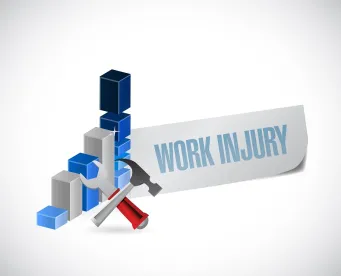A divided Oklahoma Supreme Court recently invalidated the $350,000 noneconomic damages cap on pain and suffering in personal injury lawsuits. In Beason v. I.E. Miller Services, Inc., the court held that the statutory damages cap was unconstitutional because it differentiated plaintiffs who sue to recover for bodily injury from those whose beneficiaries may sue for wrongful death caused by substantially similar mechanisms of injury. As a result, Oklahoma employers may face bigger payouts in the event of serious workplace injuries to individuals other than their own employees.
Background
Todd Beason underwent two amputations of parts of his arm after a boom from a crane fell and hit him. The crane was operated by an employee of I.E. Miller Services, Inc. as he was “attempting to move an 82,000-pound mud pump without the assistance of another crane.” As a result of the incident, Beason and his wife sued the company. The jury awarded $14,000,000 to Mr. Beason and $1,000,000 to his wife at trial. The jurors named $5,000,000 of the damages awarded to Mr. Beason as noneconomic damages. The trial judge determined that all of Mrs. Beason’s damages were noneconomic.
Based on the language of 23 Oklahoma Statutes (O.S.) 2011 Section 61.2, which limits the amount of noneconomic damages in personal injury cases to $350,000.00, the district court reduced the combined verdict to $9,700,000. Specifically, the court reduced the Beasons’ noneconomic damages from $5,000,000 and $1,000,000, respectively, to $350,000 each (totaling $700,000). The Beasons appealed the ruling, arguing that 23 O.S. 2011 Section 61.2 was unconstitutional.
The Oklahoma Supreme Court’s Ruling
The Oklahoma Supreme Court agreed with the plaintiffs and held that the 23 O.S. 2011 Section 61.2 was unconstitutional. In so holding, the court relied on Article 5, Section 46 of the Constitution of the State of Oklahoma, which prohibits the legislature from passing “special laws” that treat similarly situated groups differently.
The court reasoned that by limiting the recovery for pain and suffering in cases where the plaintiff survives an injury-causing event, the legislature treated survivors differently from the way it did persons who die from an injury-causing event. The Oklahoma Constitution explicitly prohibits a damages cap on injuries that result in death. Since a personal representative of an individual who dies of an injury-causing event stands in the shoes of the decedent in bringing a claim, the court reasoned that all such claims, for damages purposes, are identical to claims brought by the survivors of injury-causing events.
The court explained that “the people of Oklahoma have shown a clear preference that damages for personal injury be based on an assessment of evidence by a jury.” Given that Oklahomans have vested the jury with the responsibility to determine the amount of damages for pain and suffering for an injury resulting in death, the court inferred the same to be true in cases of injuries that do not result in death. Consequently, the court found the noneconomic damages cap limiting the Beasons’ recovery to be unconstitutional.
What Does This Mean for Employers?
Now that the noneconomic damages cap on pain and suffering in personal injury lawsuits is unconstitutional in Oklahoma, employers may be on the hook for much more money in the event of workplace injuries other than to their own employees, who are limited in most cases exclusively to workers’ compensation benefits for their work-related injuries and illnesses. Under the previous law, the damages cap could be sidestepped only if the defendant (1) had acted in reckless disregard of the rights of others; (2) had acted with gross negligence; (3) had acted fraudulently; or (4) had acted intentionally or with malice. Now, even mere negligence might prove costly for employers, as noneconomic damages can add up quickly regardless of a defendant’s intentions.
Noneconomic damage awards are subjective and unpredictable. They depend on the circumstances of each individual case, as well as the members of the jury deciding the case. When a worker of another employer or another third party is seriously injured as a result of a workplace injury on a company’s premises, the company should brace itself for a potentially significant damages award, akin to the awards in fatality cases.
Damages caps, like the one the formerly in place in Oklahoma, and their constitutionally, vary by state. Like Oklahoma, some states—such as Florida and Illinois—have struck down noneconomic tort damages caps as unconstitutional. Other states, such as Alaska, Idaho, and Kansas, however, have rejected similar constitutional challenges to such caps. Since these caps are governed by state law, employers may want to review how different states’ laws may impact their potential liability for workplace injury claims in all states where they do business.





 />i
/>i

